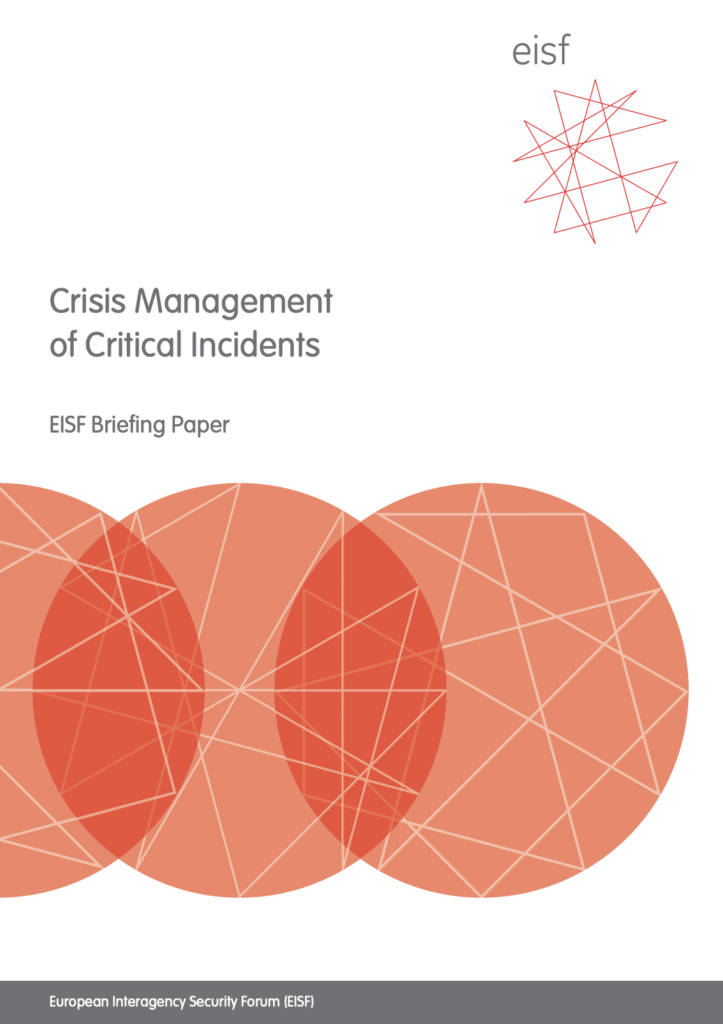No matter how good the risk management system, aid workers operate in areas where risk of critical incidents cannot be eliminated. And thus agencies must form and constantly seek to update and strengthen robust crisis response mechanisms, from incident reporting processes through to post-crisis reviews and lessons learned.
This GISF Briefing Paper seeks to outline the requirements of crisis management structures, providing a general guideline of crisis management planning, Crisis Management Teams (CMTs) and post-crisis follow-up. It is followed by the May 2010 GISF Briefing Paper, Abduction Management, that will focus on the management of abductions and kidnappings, a particular form of crisis requiring an especially tailoured response. The two papers seek to act as tools by which agencies can review and strengthen their crisis management mechanisms, so ensuring effective responses to critical incidents.
